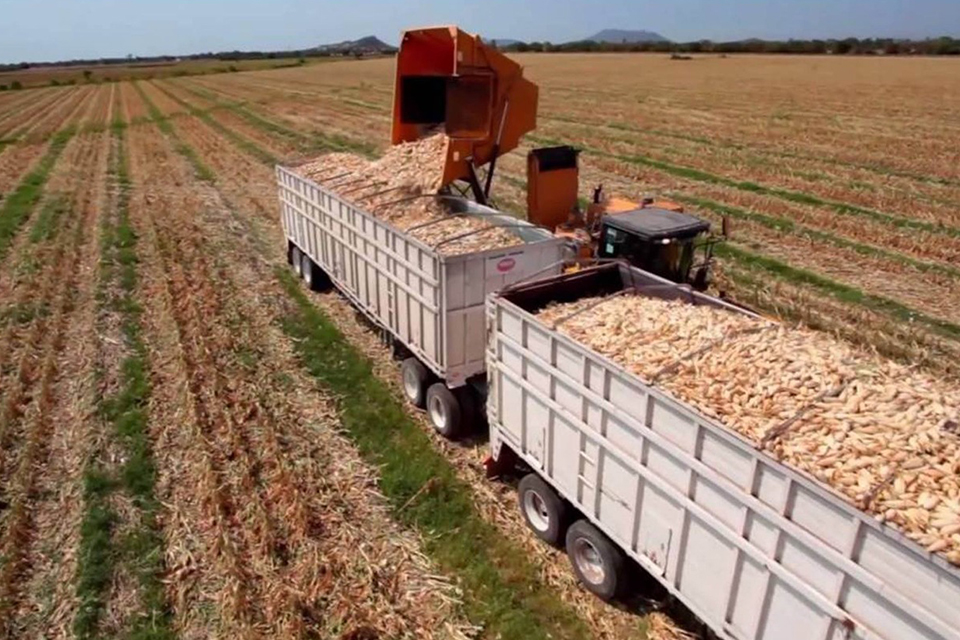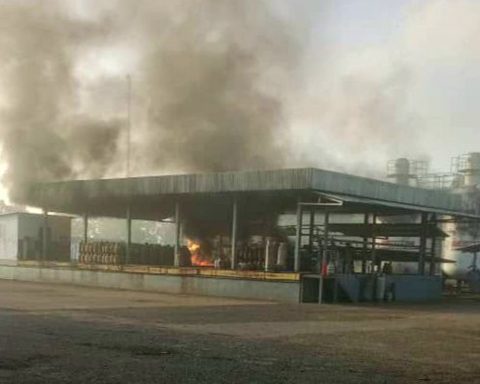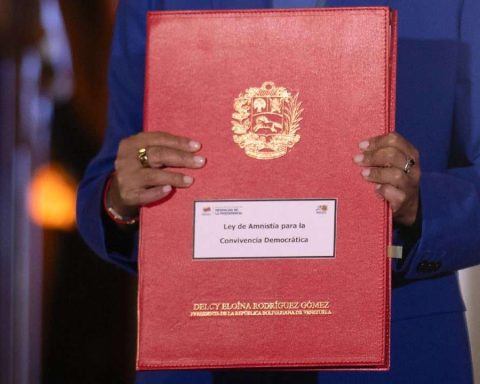Representatives of industrial and agricultural unions expressed their concern about the elimination of the diesel subsidy. They stressed that the measure may affect corn production, which is already underway, and they anticipate a decrease in the food supply. For their part, sources from the industrial sector stated that the fuel price adjustment will have little impact, since the transport sector already paid up to three times its new value. They stressed that the most important thing is that there is availability of diesel
After the recent increase in the price of diesel to 0.32 dollars per liter for the transport of the industrial sector, representatives of the union warn about consequences in production, while other members dismiss that the measure supposes a significant impact, since they assure that the transporters They were already canceling up to triple their new value.
This week it became known that Petróleos de Venezuela (PDVSA) Through the Vice Presidency of Commerce and Supply, it informed fuel distributors throughout the country of an adjustment in the sale price of diesel for transportation in the industrial sector, which came into effect on Thursday, July 6.
Armando Chacín, president of the National Federation of Cattlemen of Venezuela (Fedenaga), expressed his concern before a possible technical paralysis of production activities, which could lead to a decrease in the supply of food.
Through a statement, the representative of the union asked the ruler Nicolás Maduro to “give the necessary and precise instructions that will lead us to overcome this crisis that can have repercussions in a technical paralysis of production activities and, consequently, in a significant decrease in production.” the supply of food for our population.
«The supply of diesel to agro-producers is not sufficient to meet operational needs given its scarce or non-availability in producing areas, and our productive activity is associated with climatic conditions and biological cycles that cannot be modified. It must be understood then that the supply of diesel and other inputs must be sufficient and timely, “he stressed.
*Read also: Táchira ranchers will buy diesel at half price by agreement with private companies
He added that in order to fulfill the mission of producing food, it is necessary to carry out mechanized field work that requires the use of diesel fuel, in addition to transporting it from the fields to the consumption centers, that is, the cities.
Chacín stressed that “the new price of diesel, coupled with the exclusion of the agro-productive sector as a priority, will undoubtedly impact the negatively the results of planting plans and food prices»Therefore, he stressed that it would be prudent to evaluate the price adjustments and their consequences at another time “and not precisely now when the production plan for the winter cycle is in full development process.”
He also warned that after the measure, very possibly maize production goals are not met, that occur in greater volume during the winter cycle. He also explained that during the rainy cycle, paddock maintenance is more demanding, as well as milk and meat production, which are more enhanced during this period. “Our products are perishable and their extraction from the production units does not admit delay.”
*Read also: Bloomberg: PDVSA cut relations with Wilmer Rupert’s company
For his part, a source from the industrial sector who preferred not to be identified because he was not authorized to testify, indicated that the increase in diesel will not have a significant impact on the sector. In the first place, because the carriers in one way or another did pay for the fuel.
«They said that it was given away or that it was subsidized, but that is not true. The price of 0.50 dollars per liter, which is the one that is mostly handled, varies according to the locality, also depending on the emergency that each person has and depending on the dispatch that is made. All the prices that are paid are above the value that is estimated today,” the source stated.
In this sense, he stressed that the important thing for the industrial sector is that there is fuel availability, “so that two or three days are not lost in a queue to supply, because these are costs that in one way or another are being perceived by having a truck stopped during those days».
*Read also: PDVSA ad hoc seeks to reach payment agreements with Crystallex, ConocoPhillips and bondholders
Likewise, he highlighted as a “positive consequence” of the increase in fuel “the fact that PDVSA has money to maintain, not only the refineries, but also the transport units.” He pointed out that the elimination of the subsidy favors the reduction of inflation “because there is a resource that was not available before and that was being subsidized.”
In the opinion of the source consulted, the price of diesel is being honest and somehow reducing the difference with respect to the price of fuel in other countries.
«You cannot continue subsidizing diesel in the way it is being done. In Colombia it costs twice as much, in the United States it costs four times more and in Europe, in some places diesel is more expensive than gasoline. The cost of producing it is being charged, together with the administrative cost, a small profit and the cost of towing,” said the person consulted.
Intermittent availability of diesel
Regarding the availability of fuel for the industrial sector, the source highlighted that, although in some states “it has been normalizing”, such as the states of Aragua, Carabobo, Lara and Yaracuy, “it is still intermittent.”
«I can say that today, but it may be that tomorrow again they report that they have problems; some locality that I can report without fuel today, the next day it may be supplied. It is intermittent, it cannot be said categorically that in some state it is already solved, “he said.
According to figures from the oil industry, fuel production is currently at 95,000 barrels of fuel per day, after the incorporation of the El Palito refinery, which was paralyzed. In the opinion of the source, the above makes production more even, although it is still insufficient, since consumption is above it.
“Today, totally, around 95,000 barrels per day are being produced and that production volume has to increase a little more, in order to supply the national market in a more agile way. Today’s demand is approximately 120,000 barrels of gasoline, there is a small deficit, while diesel requires between 30,000 and 40,000 barrels approximately.
He stressed that the main objective is to stabilize production, both gasoline and diesel, in order to gradually reduce the problems that generate the agro-industrial sector.
Celso Fantinel, president of the Confederation of Associations of Agricultural Producers of Venezuela (Fedeagro), said that by not having financing, everything is uphill for the sector.
“That they remove the gasoline subsidy and stop supporting the lazy rattlers,” said the Fedeagro representative.
*Read also: PDVSA announces a new diesel price for the industrial sector as of this #Jul 6
Post Views: 199














